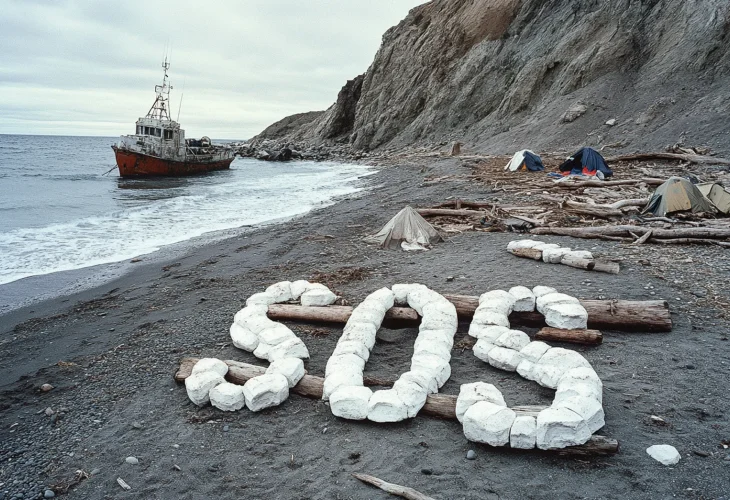History and Archaeology
The Incredible Survival Story of the Pancho Shipwreck
How hundreds of Jewish refugees braved storms, hunger, and war to reach the Land of Israel

It was a freezing, stormy night. The massive 279-ton ship Stephano was being battered by violent winds. Onboard, five hundred passengers clung to anything they could as huge waves hurled the vessel skyward and then smashed it back down into the sea.
Around midnight, the ship struck the jagged rocks of a barren, isolated island. The impact threw passengers into the cold sand. They were alive, but alone with no one in the world knowing where they were.
Climbing the island’s hills in search of water, they found a spring and camped there for the next ten days. They arranged large SOS signs from wood and stones, hoping to be spotted.
Desperate, they sent five teenage boys in a lifeboat to find help. The small craft vanished into the open sea. Days later, the boys were discovered in Alexandria, Egypt, weak, feverish, and with no memory of how they had arrived.
This might sound like a daring tale from centuries ago, but it happened only about eighty years ago. Many of the survivors later lived in Israel and wrote about their experiences.
The ship at the center of this story was the Pancho, which had departed in May 1940 from Bratislava, Slovakia. Onboard were 500 Jewish passengers, including 100 well-off Jews from Bratislava who were fleeing Europe just before the Nazi occupation. With great generosity, they paid for the journey of an additional 400 Jews.
Passports for Paraguay, a neutral South American country, were arranged for everyone. The Pancho traveled down the Danube River through Romania, Bulgaria, and Yugoslavia. For four long months, no European port would give them food or fuel. Officials claimed the passports were fake and feared angering the Nazis.
Finally, in a remarkable act of kindness, Bulgarian Jews managed to gather food and fuel for them. This allowed the ship to set sail toward the Black Sea and the Land of Israel.
The plan was to stop for fuel on the island of Samos, but the war made that impossible. Instead, the ship headed toward the Greek port of Piraeus. On the way, disaster struck and the water supply ran out. The captain, desperate, siphoned water from the steam boiler and replaced it with seawater. The boiler could not handle it and exploded in the middle of the night, shaking the vessel and leaving it without power.
Helpless against the waves, the ship drifted until it smashed into the shores of Kamli, a tiny, uninhabited island only two kilometers wide. With no resources except a spring, the passengers waited for rescue.
After ten days, an Italian aircraft spotted their SOS messages. Two ships from Rhodes came to pick them up. But instead of taking them to freedom, the Italians, allies of Nazi Germany sent them to a detention camp on Rhodes Island. There they lived for months in tents under harsh conditions.
The Jews of Rhodes were already suffering under Italian rule. Just before the war, the authorities had destroyed the Jewish cemetery to build a park, forcing families to move the remains of their loved ones.
Then came a twist of fate that saved the Pancho survivors. The Italians decided to transfer them to a detention camp in Italy. This decision spared them the tragic fate of Rhodes’ Jews, most of whom were deported to Auschwitz. Of the 1,673 Jews sent there, only 151 survived. Another 42 were rescued by the heroic Turkish consul Salahattin Ülkümen, who issued them false Turkish citizenship papers.
Even in Italian detention, the Pancho passengers were not sent to death camps. In 1943, the area was liberated by the Jewish Brigade, Jewish soldiers fighting as part of the British Army. At last, the Pancho refugees reached their dream destination: the Land of Israel.
Their journey was filled with storms, hunger, and danger, but it was also marked by courage, generosity, and miracles that allowed them to survive when so many others did not.

